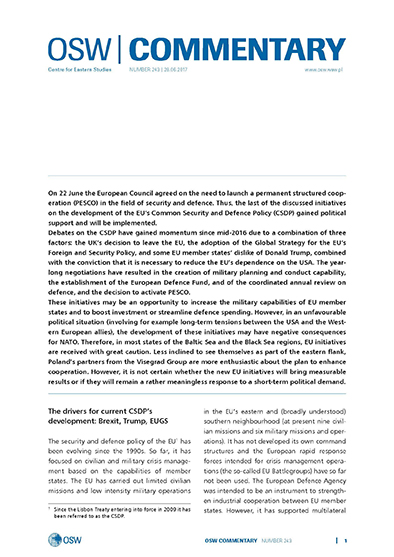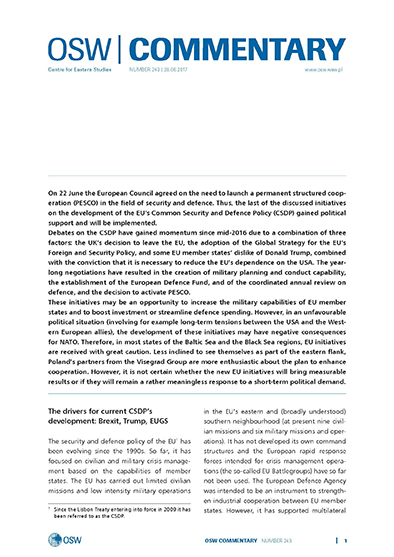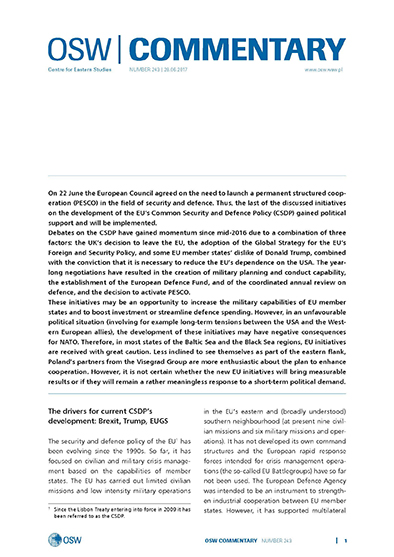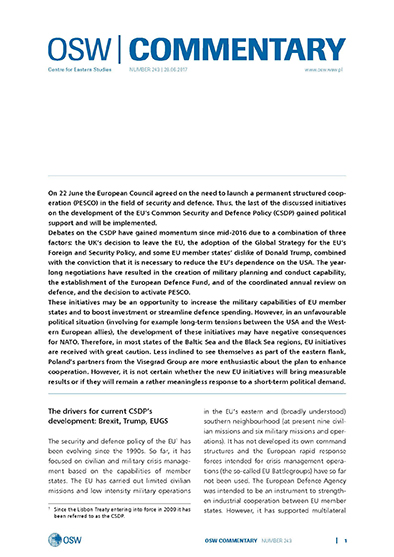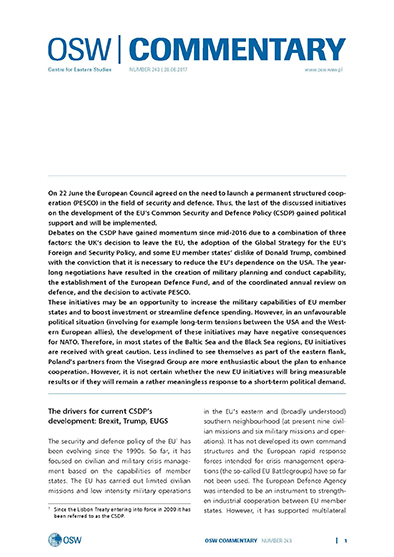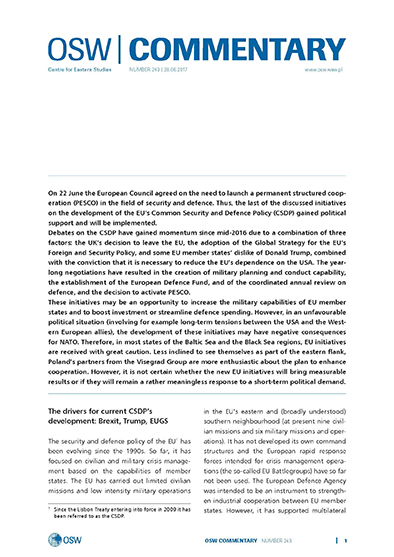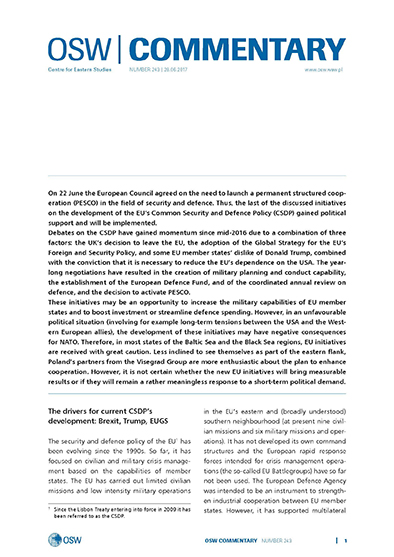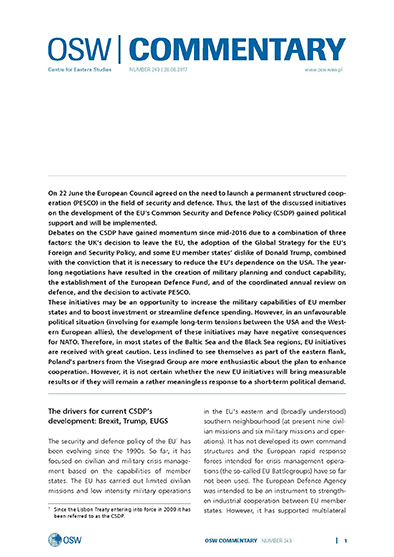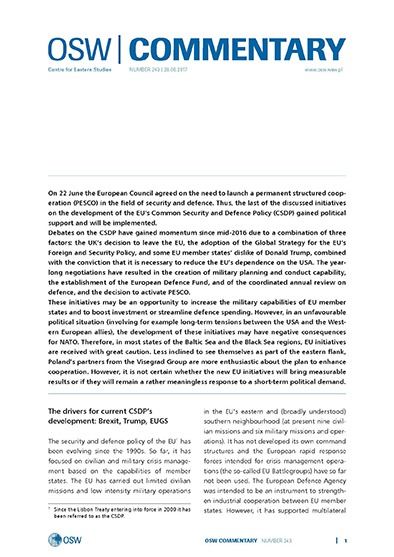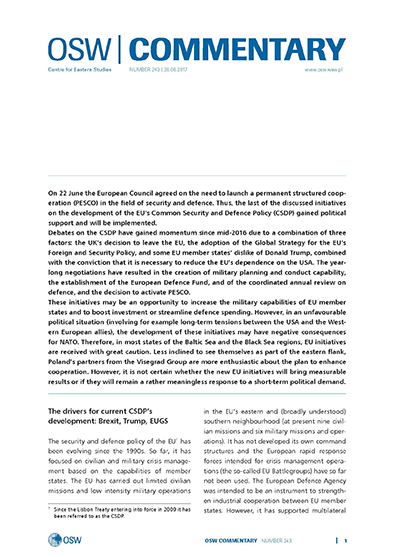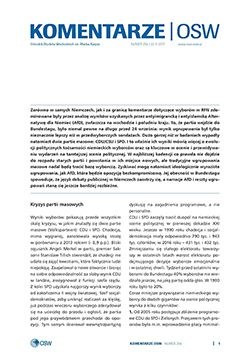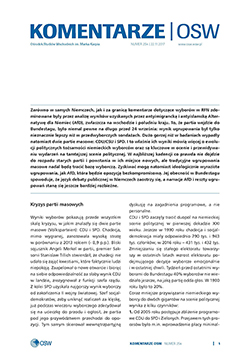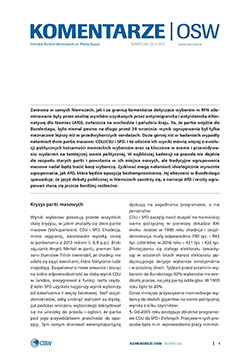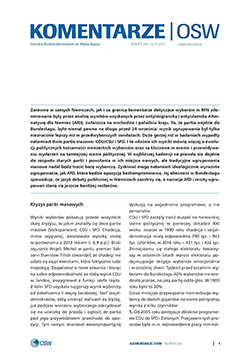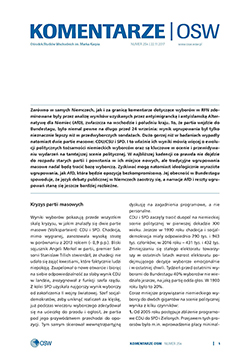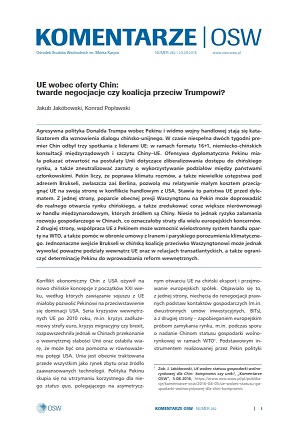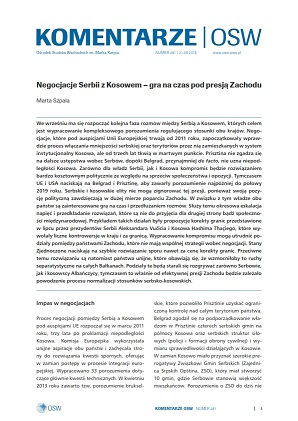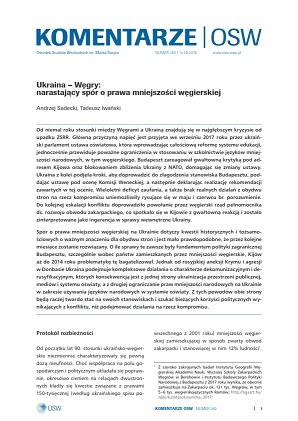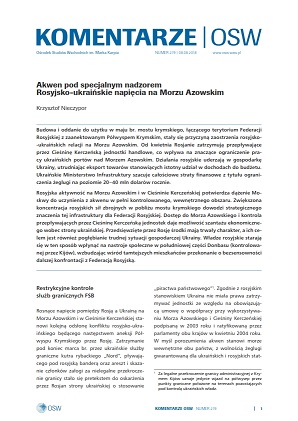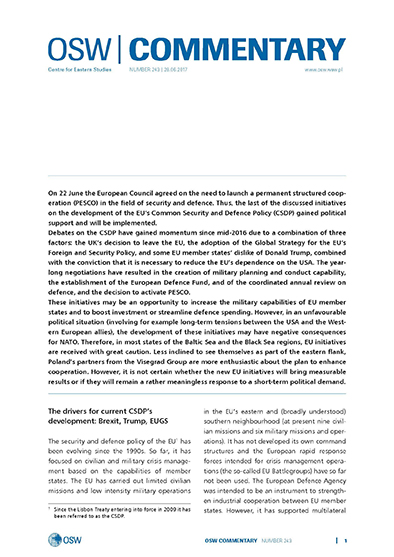
Rebuilding Germany’s air defence capabilities: on the eve of crucial decisions
Rebuilding Germany’s air defence capabilities: on the eve of crucial decisions
Keywords: Germany’s air defence
As NATO has returned its focus to collective defence since 2014, very short, short-range and medium-range surface-based air defence has become a desirable capability. Germany, which has been recalibrating the Bundeswehr to resume participation in conventional military conflicts, is in the process of re-creating air defence capabilities. In 2018–2019, the German Defence Ministry is expected to take decisions regarding two crucial air defence programmes: the NNbS and the TLVS. || The very short and short-range air defence capabilities have effectively been dismantled within the German Army over the last decade. The Bundeswehr plans to rebuild them in the NNbS programme in order to meet its commitments within the NATO Defence Planning Process (NDPP). The contract for the NNbS is expected to be signed in 2019. However, the plans to quickly rebuild capabilities in this area may stumble on technical, financial and personnel challenges. || As Germany has committed to deploy a fully modernised brigade for NATO Very High Readiness Joint Task Force (VJTF) duty in 2023, Berlin is also seeking alternative solutions, such as co-operation with The Netherlands, or smaller purchases outside the NNbS programme. In late 2018 or early 2019, the German Defence Ministry is also planning to sign the contract for the medium-range air defence programme, TLVS, three years after it decided to use the results of the MEADS programme that was completed in 2014. The TLVS system will replace the Patriot batteries that have been in use since the late 1980s and have been successively upgraded. Time will tell as to whether the lengthy negotiations will enable the Defence Ministry to avoid delays and financial and technical problems in the complex TLVS programme, of which Germany is going to be the sole user for now.
More...
